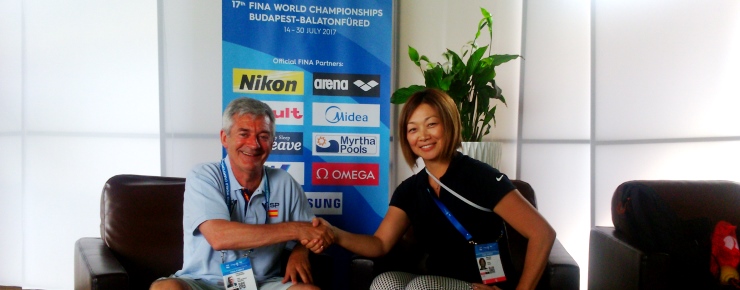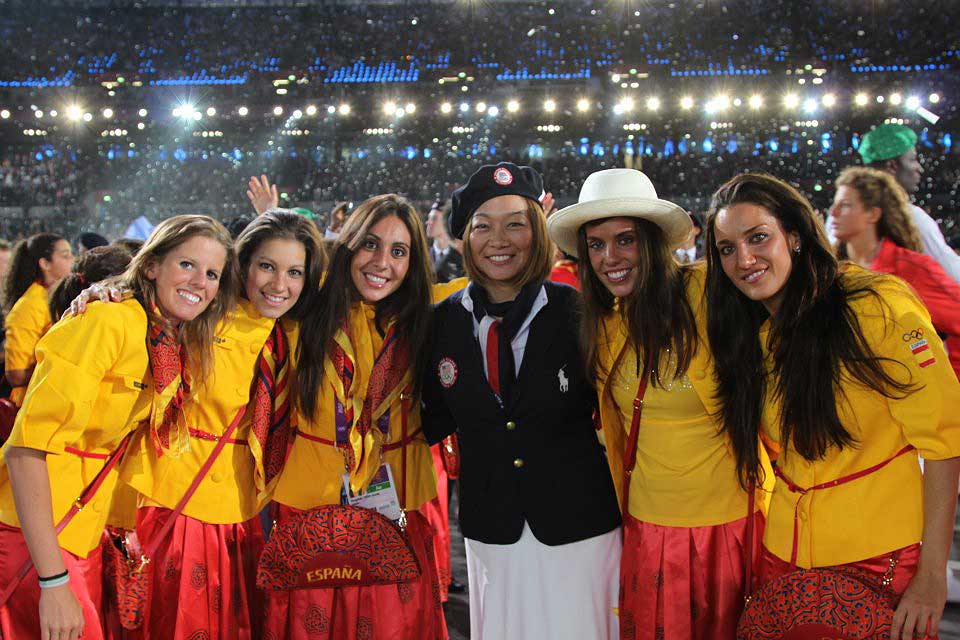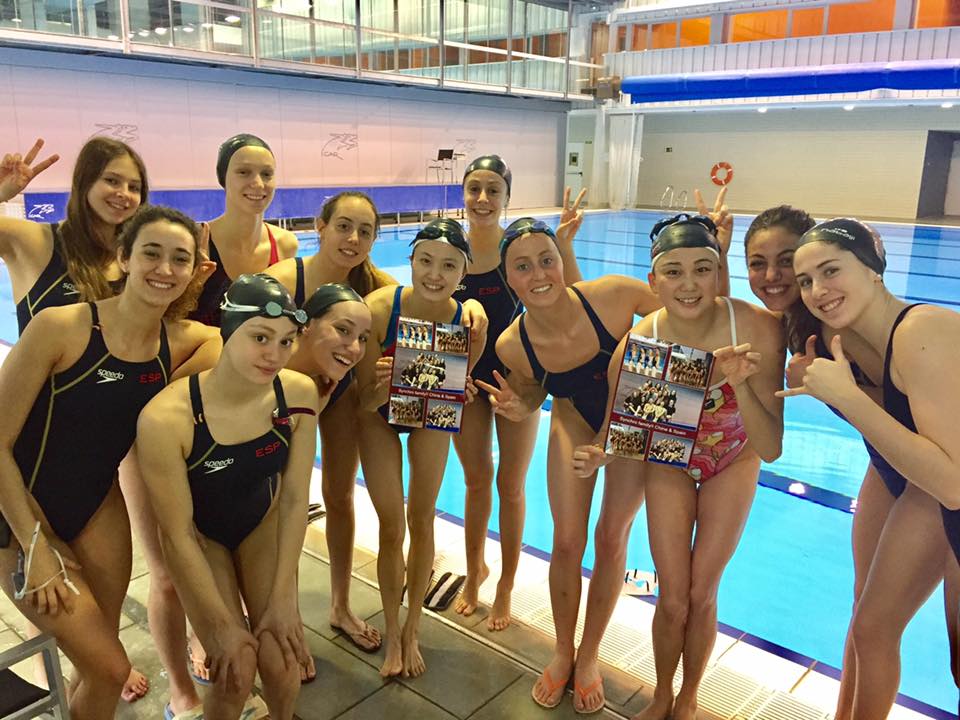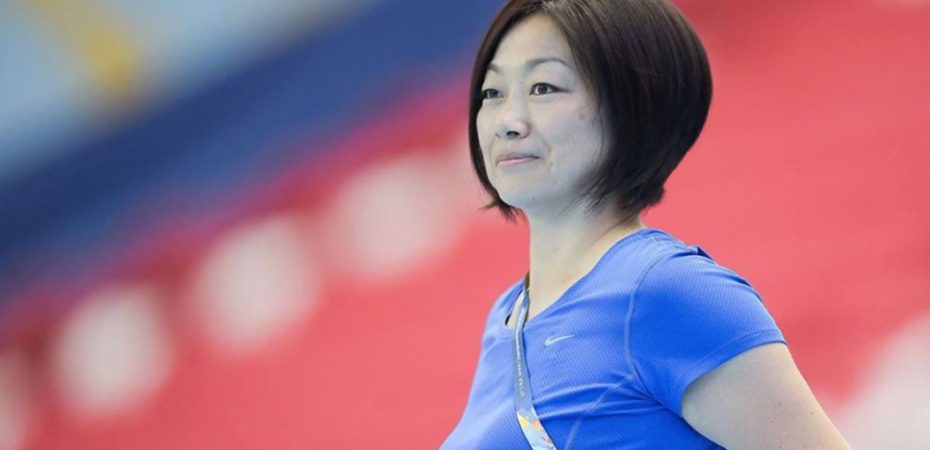The Spanish Federation announced on July 23 the appointment of Mayuko Fujiki as new head coach for the national team, replacing Esther Jaumà to lead the team for the 2017-2020 Olympic quad.
“She is an extraordinary coach with rich experiences, professional coaching methods and advanced ideas. She is strict but knows how to show the joy of the sport to the swimmers.”
These were some of the praises of Liu Daqing, Secretary General of the China Swimming Association in a letter addressing the departure of Mayuko Fujiki from the Chinese national team, which she had been coaching since 2014.
While the rumors about her return to Spain have been around for a few months, Fujiki never confirmed or denied them until the federation made the news official at the end of the competitive season. The matter was settled a few days ago at the 2017 FINA World Championships as the president of the Real Federación Española de Natación (RFEN) Fernando Carpena publicly announced her hiring.
“I am very excited,” Fujiki said. “To live in the city I love and work hard for the next three years.”

Fujiki admits it feels like she is coming back home. Indeed, she is no stranger to coaching in Spain, as she worked alongside Anna Tarrés from 2003 to 2011. She accompanied the Spanish national team during its golden years as it made history, became a world leader in synchronized swimming, and racked up the medals at the various European and World Championships. At the 2008 Olympic Games in Beijing, China, she helped Spain win the silver medal in the team and duet events, the nation’s best-ever finish to this day (the second-place finish was repeated in 2012 by the duet).
She is not only thrilled about her new position, but also to take on the challenge of bringing Spain back to its highest level and to first focus on improving its technical difficulty. However, she is very aware it will be no easy task to make it back on the international podiums, especially now that Ukraine and Italy have established themselves as the newest European powerhouses over the last four years.
“With a young squad, I have to find a different approach to show the unique ‘Spanish’ synchro,” she said. “But also to build fundamental techniques in individual swimmers. I am aware this project requires a lot of different skills as a head coach. But I am very excited to build a new team and pursue this with other coaches and the athletes.”
The expectations have always been high, and it will be no different as Fujiki takes over. Spain is very proud of its synchronized swimming team, and has been hooked on its success since the Tarrés years. Following her departure, the results have dipped for the country, eventually leading to a failure to qualify a team to the 2016 Olympics only four short years after winning bronze in London. The team has since been able to maintain itself in the top six internationally, but the only recent medals have been coming from the soloist Ona Carbonell.
“Pressure? Yes…” said Fujiki when asked if the expectations might be difficult to handle. “But none of the places I went to didn’t have a big expectation and pressure. It’s what we all have to start a new project.“
After leaving Spain, she worked with USA Synchro as head coach during the 2011 and 2012 seasons, and all the way to the 2012 Olympic Games. There, the U.S. duet finished 10th. In 2013, she shortly went back to Spain to help coach the solo and duet ahead of the FINA World Championships held in Barcelona, Spain.

Fujiki took over the Chinese national team in 2014, where she was given the green light to revamp the country’s style and way of swimming, and to teach and help the younger Chinese coaches develop their potential so they could in the future become national team coaches themselves. Her team won two silver medals at the 2016 Olympic Games, a record for the country. She took a step back this year for the 2017 FINA World Championships, as China sent a mix of province swimmers to Budapest, Hungary, rather than a selected national team.
“I’m just really happy that I got to do things I wanted to do with China, and with good results in Budapest,” she said. “We have agreed to keep collaborating in the future also. Spain and China will work together not only in synchro but in other disciplines in the federations.”
Fujiki likes to remain connected and to maintain the relationships she’s established with her former teams and swimmers. During the 2017 season, her duet of Li Xiaolu and Sun Wenyan representing the Hunan province actually trained for a few weeks in Barcelona, Spain alongside the Spanish team. She hopes and aims for the two countries to continue having exchange programs and common training camps in the future.

Fujiki will start in September with the team to begin training ahead of the 2018 season, while Carbonell will wrap up her 2017 season at the final FINA World Series meet in Tashkent, Uzbekistan at about the same time with Jaumà.
Ana Montero remains on as Technical Director, while Natalia Didenko and Anna Vega join the coaching staff alongside Gemma Mengual and Anna Vives.
To find out more about Fujiki’s story and career, we published a few months ago a long feature on her and her accomplishments: In Depth with Mayuko Fujiki, China’s Revolutionary Coach: “I felt very motivated that I could bring my own style and learning experiences.”


Mayuko, congratulations on your bronze in Paris!
Loads of synchro love,
Karla
Indianapolis